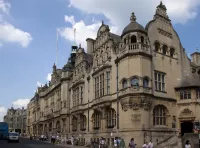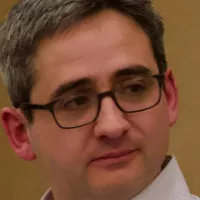The Universities and Colleges Admissions Service (UCAS) is a UK-based charity and private limited company that manages the application process for British universities and colleges. Founded in 1993 through the merger of the Universities Central Council on Admissions and the Polytechnics Central Admissions System, UCAS facilitates applications and provides educational support services. Its funding comes from applicant and university fees, along with advertising revenue.
1957: CVCP ad hoc committee formed
In 1957, the Committee of Vice-Chancellors and Principals (CVCP) established an ad hoc committee to review increasing University applications, leading to the formation of UCCA.
January 1961: UCCA Third Report
In January 1961, the Committee of Vice-Chancellors and Principals (CVCP) ad hoc committee's Third Report recommended setting up a central agency, which later became UCCA.
1963: UCCA pilot year
In 1963, the UCCA scheme underwent a pilot year, handling a subset of applications.
1964: UCCA uses computer bureau services
In 1964, UCCA began using the services of a computer bureau with a Univac machine for application processing.
1964: UCCA First Full Year of Operation
In 1964, UCCA managed admissions for the first full year of operation.
1965: UCCA handles 80,033 applicants
In 1965, UCCA handled 80,033 applicants.
1966: Oxford and Cambridge Join UCCA
In 1966, Oxford and Cambridge joined UCCA with slightly modified procedures.
1967: UCCA Installs its Own Univac Computer
In 1967, UCCA installed its own Univac computer to process applications.
1967: London medical and dental schools, Belfast and Stirling join UCCA
In 1967, the London medical and dental schools, as well as Belfast and Stirling, joined UCCA.
1968: UCCA moves to Cheltenham
In 1968, UCCA relocated its operations from London to Cheltenham, Gloucestershire.
1969: UCCA handles 114,289 applicants
In 1969, UCCA handled 114,289 applicants with an acceptance rate of just over 50%.
1972: Polytechnics discuss admissions with UCCA
In 1972, Polytechnics engaged in discussions with UCCA and the Central Register and Clearing House concerning potential future structures for admissions systems.
1977: Polytechnic admissions study
A study in 1977 found that between sixty and seventy per cent of those admitted to a polytechnic had only applied to that institution and forty percent of admissions resulted from applications made in August or September of the year of entry.
1983: Negotiations to share computing, technical and office facilities in Cheltenham
In 1983 the Committee of Directors of Polytechnics began negotiations with UCCA to share its computing, technical and office facilities in Cheltenham to establish a course entrance system, based on the existing model used by UCCA.
1985: PCAS System Comes into Effect
In 1985, the PCAS system came into effect, led by its first Chief Executive, Tony Higgins. It handled around 140,000 applications to polytechnic courses, with 40,000 a year going on to study at polytechnics.
1992: UCAS formed by merger
In 1992, UCAS was formed through the merger of Universities Central Council on Admissions (UCCA) and Polytechnics Central Admissions System (PCAS). The name UCAS is a contraction of the former acronyms UCCA and PCAS.
1992: UCCA and PCAS combine under Tony Higgins's leadership
In 1992, following the change of status and name of most polytechnics to universities, UCCA and PCAS combined under Higgins's leadership. Initially the application form was branded jointly UCCA/PCAS.
July 1993: UCAS Formed
In July 1993, the Universities and Colleges Admissions Service (UCAS) was formed through the merger of the Universities Central Council on Admissions and the Polytechnics Central Admissions System.
1994: UCAS Officially Renamed
In 1994, the new merged body was officially renamed UCAS.
1996: Art and Design Admissions Registry Absorbed into UCAS
By 1996, means of absorbing the Art and Design Admissions Registry into UCAS were found.
2019: UCAS accused of abusing its position
In 2019, consumer finance expert Martin Lewis accused UCAS of abusing its position after it allowed a private debt company to promote high interest commercial loans to school leavers.
2022: Adjustment Cancelled
In 2022, the "Adjustment" scheme was cancelled and is no longer available. Adjustment allowed applicants who exceeded their firm offer conditions to search for a place at another university while retaining their original offer.
2025: Free School Meals application fee waived
From 2025 entry, student in receipt of UK government funded free school meals at some point during the last six years, are eligible to have the application fee waived.
2026: New Personal Statement Format Developed
In 2026, UCAS has developed a new format for the personal statement, replacing the free-form statement with three questions, for those completing an application for 2026 entry onwards.
Mentioned in this timeline
England a constituent country of the United Kingdom occupies roughly...

A house is a residential building ranging from simple huts...

September is the ninth month of the year in the...

Oxford is a city in Oxfordshire England It serves as...

Amsterdam the capital and largest city of the Netherlands boasts...
An academy is an institution of tertiary education with its...
Trending

12 minutes ago Cavaliers defeat Hornets 118-113: Game recap and key takeaways from the match.
12 minutes ago Vaccination Requirements and Measles Prevention in Cabo San Lucas and La Paz
13 minutes ago Cason Wallace Secures Four Steals in Thunder's Victory: A Promising NBA Performance.
1 day ago Roman Anthony expected as Red Sox leadoff hitter in 2026, lineup prediction

13 minutes ago Isaiah Hartenstein showcases passing skills, removed from injury report, fills stat sheet.
13 minutes ago Sadie Sink and Noah Jupe Star in Romeo & Juliet West End Production.
Popular

Jesse Jackson is an American civil rights activist politician and...

Barack Obama the th U S President - was the...

Bernie Sanders is a prominent American politician currently serving as...

Michael Joseph Jackson the King of Pop was a highly...

Ken Paxton is an American politician and lawyer serving as...
WWE Raw a professional wrestling television program by WWE airs...